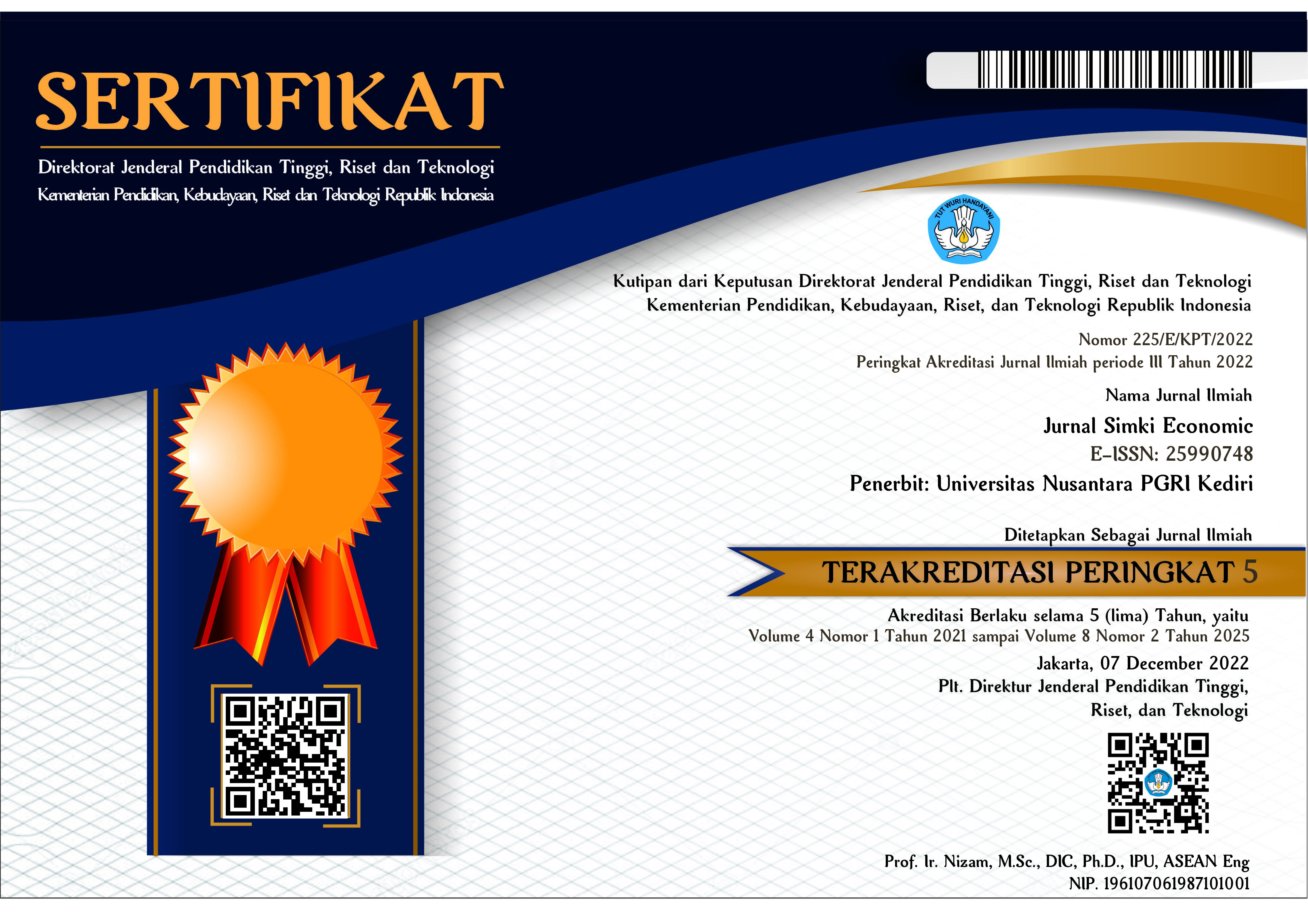Tinjauan Kritis Atas Pelaporan Keuangan Hotel Berbasis Syariah
 Abstract views: 335
,
Abstract views: 335
,
 PDF (Bahasa Indonesia) downloads: 378
PDF (Bahasa Indonesia) downloads: 378
Abstract
The purpose of this study is to review how the financial reporting process is carried out by the Cahaya Berlian Syariah Hotel. This study uses qualitative research by collecting data in the form of observations, interviews and documentation. The results of this study indicate that 1) The Cahaya Berlian Syariah Hotel uses an ijarah contract in accordance with PSAK 107, however the transactions carried out are not in accordance with the principles of sharia hotel governance because they use conventional banks so they have the potential to generate usury or non halal fund, 2) Buying and selling transaction in restaurants are in accordance with PSAK 102, however when canceling orders hotels do not calculate how much cost have been incurred in the order making process which can trigger losses for hotels and restaurants, 3) Financial reporting is not in accordance with PSAK 101, because the reporting is incomplete,. The zakat issued does not account or 2,5% of income, and the hotel does not separate non-halal funds rom conventional bank account so that the benevolent fund issued come from hotel and restaurant income.
Downloads
References
Azizah, N., Hamang, M. N., & Hannani. (2022). Analisis penerapan prinsip syariah pada Hotel Syaiah Atiqa Pinrang. IAIN Pare, 1-16. http://repository.iainpare.ac.id/3938/
Dwiyono, G., & Tedi, E. (2022). Akuntansi Perhotelan Dalam Pengelolaan Kas Pada Hotel Grand Asrillia Bandung. Jurnal Of Office Administration, 13-24. https://www.jurnal.ariyanti.ac.id/index.php/adminof/article/view/19
Fatwa DSN. (2000). Pembiayaan Ijarah. No:09/DSN-MUI/IV/2000.
Fatwa DSN. (2017). Ketentuan Terkait Hukum dan Bentuk Murabahah. N0.111/DSN-MUI/IX/2017.
Harahap, S. S., Wiroso, & Yusuf, M. (2010). Akuntansi Perbankan Syariah. Grogol- Jakarta Barat: LPFE Usakti.
Ikatan Akuntansi Indonesia. (2020). PSAK No. 101 Penyajian Laporan Keuangan Syariah. Jakarta: Ikatan Akuntansi Indonesia.
Ikatan Akuntansi Indonesia. (2020). PSAK No. 102 Akuntansi Murabahah. Jakarta: Ikatan Akuntansi Indonesia.
Ikatan Akuntansi Indonesia. (2020). PSAK No. 107 Akuntansi Ijaroh. Jakarta: Ikatan Akuntansi Indonesia.
Mas'udah, A. (2022). Konsep Dana Non-Halal Pada Hotel Syariah Dalam Perspektif Hukum Islam. Institut Agama Islam Negeri Kediri, 345-364. https://ejournal.staika.ac.id/index.php/alkamal/article/view/17
M. Moha, & Oktaviani, S. (2017). Penyajian Laporan Keuangan Eljie Hotel Syariah Gorontalo. Skripsi.
Muliana, & Nurbayani. (2019). Analisis ProfitabilitasUntuk Mengukur Kinerja Keuangan Manajemen Hotel Syariah "Al Badar" di Makasar. Universitas Fajar, Vol 3, No 1, 1-12. https://doi.org/10.37531/sejaman.v3i1.466
Mulyani, S., & Jamilah, S. (2022). Implementasi Manajemen Dana Pada Bank Syariah. Jurnal Perbankan Syariah, 1-11. https://doi.org/10.56184/jkupsjournal.v5i2.148
Purbasari, I. (2013). Pengelolaan zakat oleh badan dan lembaga amil zakat di Surabaya dan Gersik. Universitas Trunojoyo Madura, 69-81. https://doi.org/10.22146/jmh.15911
Ramadhanu, & Briandika. (2018). Penerapan Prinsip Syariah Dalam Manajemen Hotel (Studi BAnding Hotel G Syariah dan Hotel Syariah Airport). Universitas Islam Negeri Raden Intan Lampung. http://repository.radenintan.ac.id/6464/
Sugiyono. (2016). Metode Penelitian Kuantitatif, Kulaitatif, dan R&D. Alfabeta: Bandung.
Wiroso. (2019). Akuntansi Transaksi Syariah. Jakarta: Iakatan Akuntansi Indonesia (IAI).
Copyright (c) 2024 Maulidatul Hasanah, Agus Sugiono, Ach. Baihaki, Aminatus Zakhra

This work is licensed under a Creative Commons Attribution 4.0 International License.














